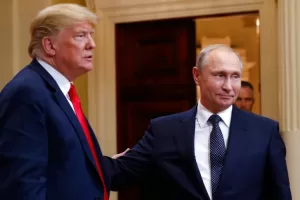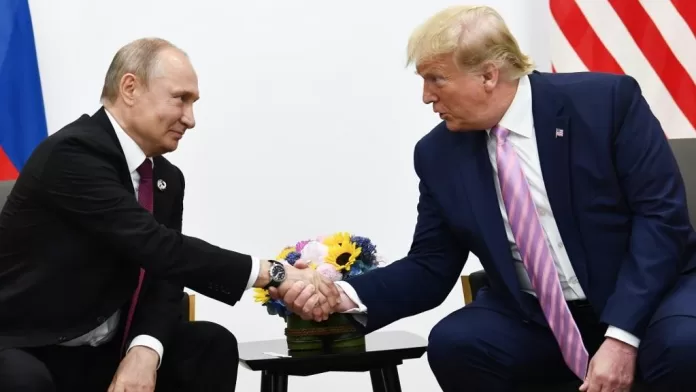US President-elect Donald Trump has announced that plans are underway for a meeting with Russian President Vladimir Putin. While no timeline has been provided, Trump revealed during remarks at his Mar-a-Lago resort in Florida that both leaders are keen to hold discussions.
He made the statement just a week and a half before taking office, following promises during his campaign to bring peace to Ukraine, which has been under Russian invasion since February 2022.
“He wants to meet, and we’re setting it up,” Trump said at a meeting with Republican governors at his Mar-a-Lago resort in Palm Beach, Florida.
“President Putin wants to meet, he’s said that even publicly, and we have to get that war over with, that’s a bloody mess.”
However, Kremlin spokesperson Dmitry Peskov, cited by Russian news agency Tass, stated that the US has not yet made a formal request for the meeting.
Expressing scepticism about the extent of US military and financial support for Kyiv, Trump reiterated his focus on peace efforts and pledged to broker an end to the ongoing war in Ukraine shortly after his inauguration.
Trump has also frequently mocked Ukrainian President Volodymyr Zelensky as a “salesman,” while raising eyebrows in Washington by rarely criticising Putin — and even speaking admiringly of the Kremlin leader.
In addition to criticising the massive military aid sent to Ukraine under President Joe Biden, Trump has raised doubts over continued US involvement in the Western military alliance NATO.
The United States under Biden has been Ukraine’s biggest wartime backer, providing military aid worth more than $65 billion since February 2022.

READ ALSO: Trump proposes US-Canada ‘merger’ amid Trudeau resignature
Trump has nominated Keith Kellogg, a retired lieutenant-general and former national security adviser, to serve as a special envoy to Ukraine and Russia in his administration. Kellogg previously outlined his vision for US involvement in the conflict in a research paper published by the America First Policy Institute in April last year.
In the paper, Kellogg proposed that US aid to Ukraine should be conditional on Kyiv’s willingness to engage in peace talks with Moscow. However, he also suggested that if Moscow declined to participate, the US should continue supporting Ukraine militarily and financially.
Following Trump’s election victory in November, Ukrainian President Volodymyr Zelensky expressed optimism about the conflict’s resolution. He suggested that Trump’s leadership might accelerate the war’s end.
Zelensky described their post-election phone call as a “constructive exchange” but did not disclose whether Trump had made any demands regarding potential peace negotiations with Russia.
As Trump prepares to assume the presidency, the international community will closely watch his next steps in addressing the conflict, particularly the potential outcomes of a meeting with Putin and its implications for US-Ukraine-Russia relations.

